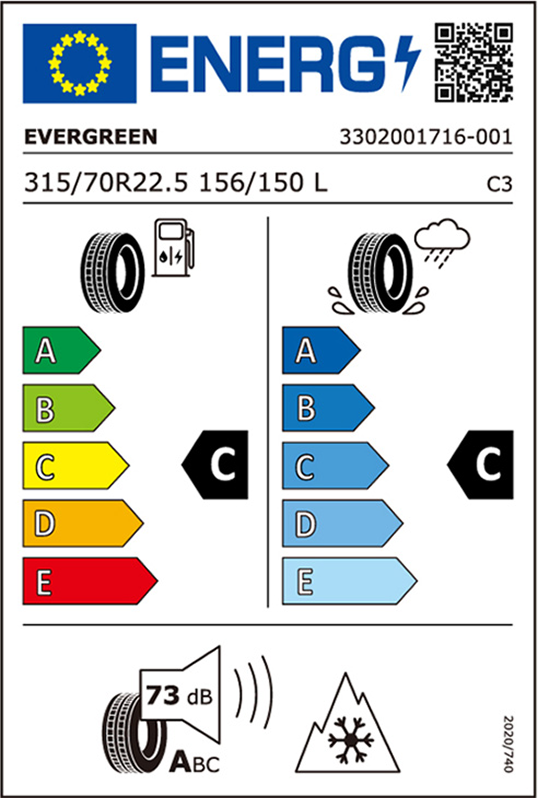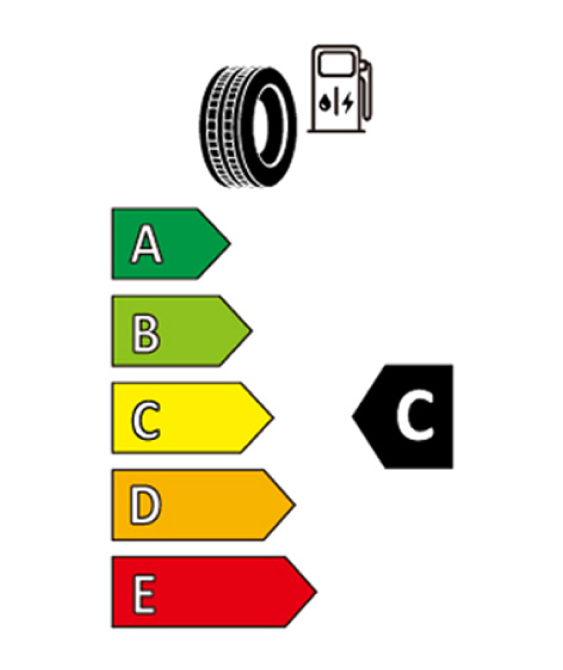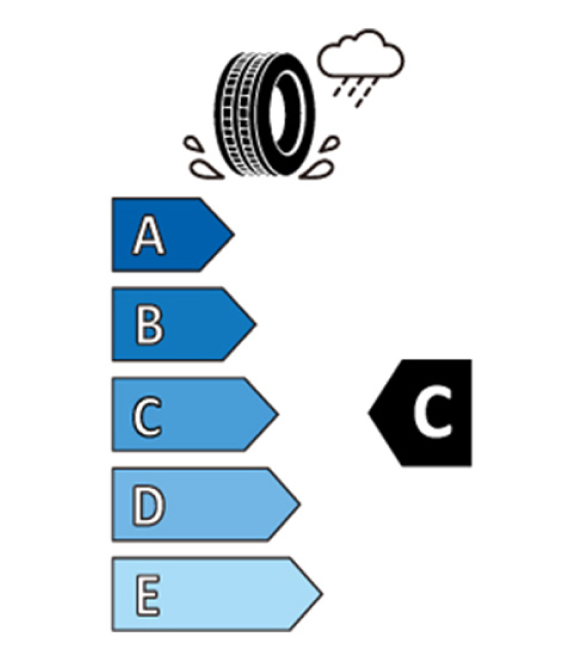
- Tyre-->
- Highlights-->
- Support-->
- About-->
- Contact-->
- Europe
-
Americas
- Asia & Oceania
- Africa








● Fuel consumption is influenced by the rolling resistance of the tyres, caused by tyre deformation during rotation, which results in energy losses in the form of heat. The greater the deformation, the higher the rolling resistance, and consequently, the more fuel is required to move the vehicle forward. In other words, lower rolling resistance means lower fuel consumption and therefore lower vehicle emissions, including CO₂.
● The label displays different “rolling resistance” grades, where A is the most fuel-efficient and E the least. The black arrow next to the grading indicates the performance level of the product. Customers should be aware that actual fuel savings and road safety depend heavily on driver behavior. Environmentally friendly driving can significantly reduce fuel consumption. Therefore, tyre pressure must be correct and regularly checked to ensure optimum fuel efficiency.

● The most important role of a tyre is to provide safety in all weather conditions. Wet traction or grip is one of the most important performance characteristics of any tyre.
● There is typically a performance trade-off when balancing noise, fuel efficiency, and safety performance like wet grip. The labeling allows customers to prioritize their preferred type of performance. The label shows five grades, with tyres rated "A" offering the highest levels of wet grip, and "E" the lowest.
● When the label displays the 3PMSF symbol (Three Peak Mountain Snowflake), it indicates the tyre has passed a regulated, objective test, showing it has at least 25% better snow traction than a Standard Reference Test Tyre (SRTT).

● Exterior tyre noise levels are measured in decibels (dB) and categorized into three classes according to EU Regulation (ECE117):
A = 3 dB less than the current EU limit value (quietest)
B = Compliant with the current EU limit value
C = Exceeds the current EU limit value (non-compliant)



